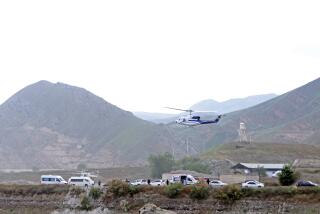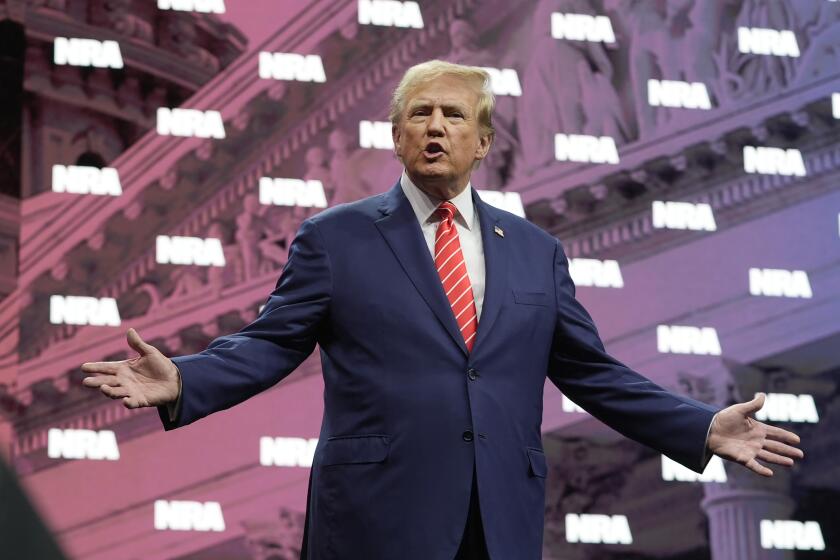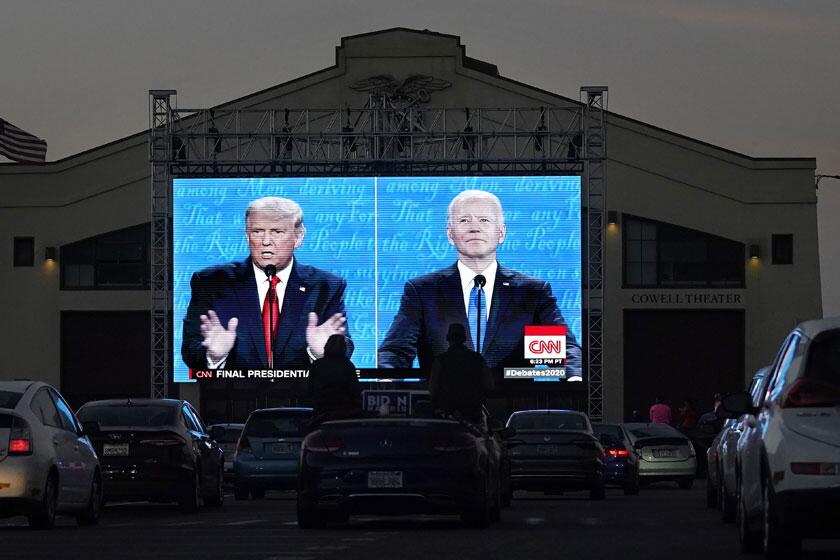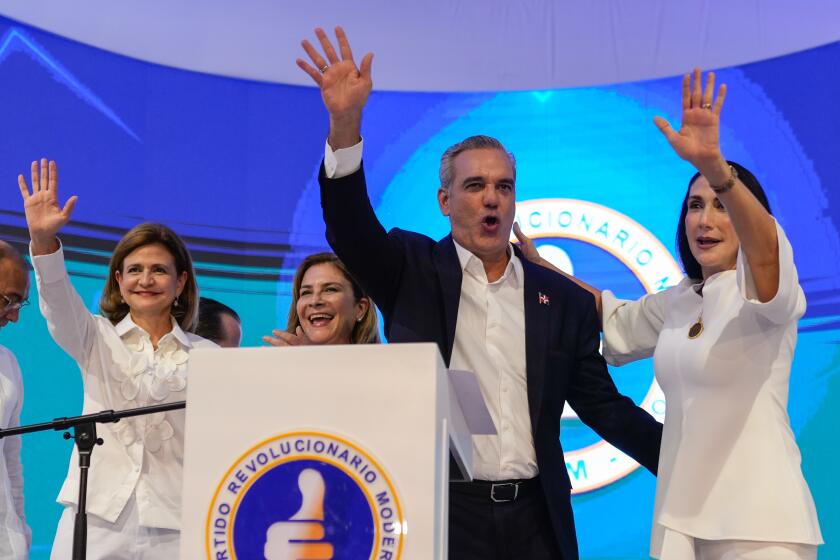PERSPECTIVE ON IRAN : A Nation Unlikely to Be ‘Contained’ : We must talk to Tehran, despite earlier rebuffs. Iran is too strategic to ignore, even if we could successfully isolate it.
The Clinton Administration has reportedly concluded that the leadership of Iran and Iraq will remain hostile to U.S. aims for the foreseeable future and that a strategy of dual containment should be applied to ensure that both countries remain equally weak. It is difficult to see how such a policy can succeed.
Half a loaf, yes. Iraq is already essentially contained, and the June 27 U.S. strike against Iraqi intelligence facilities in Baghdad speaks both for U.S. resolve and our ready capability to act when necessary. Saddam Hussein’s capacity to break out of his isolation is extremely limited, however evident is his ability to retain power.
One of the strategic concerns said to be motivating the new U.S. policy is that Hussein may be seeking relief from U.N. sanctions by a degree of “rapprochement” with the regime of Ayatollah Hashemi Rafsanjani in Iran. But the likelihood of Iraq gaining much meaningful relief from any such effort is highly unlikely, given the historic absence of trust between the two countries and the war-deepened animosity of the past decade.
Containment of Iraq has both clear objectives and good reason for success. But to contain Iran is another matter. It is, in the first instance, no small place--a nation now approaching 60 million, its leaders no less determined than was the Shah to be and be seen as preeminent in the Gulf, and now with ambitions in Central Asia as well. And ideologically, although it has failed to “export” its version of an Islamic state, the success of Iran’s revolution overthrowing the Shah remains a stimulus for the variety of forms of Islamic revivalism in the Middle East and North Africa.
That challenge will not be bottled up in Tehran. It can be met only over time and in the ability of regimes throughout the area to find ways to respond to broad social/economic dissatisfaction and to growing demands for participation in the body politic with processes that are authentic and home-grown. Therein is the appeal of the Islamic revivalism.
If there were viable alternatives to the existing regime in Tehran, a policy of containment might offer promise. But even with persistent economic malaise and resulting popular discontent, there is no evidence of a credible threat to the regime’s staying power.
The inescapable reality is one of a country large and strategically placed, whose policies intrude on and conflict with several major American policy objectives and their achievement; to wit:
* A stable and peaceful Persian Gulf : This interest is currently served by our own Gulf War-won preeminence on the scene, accepted by Iran as fact but seen as directly countering its view that Gulf security should be determined by the littoral states. There cannot be, for the long term, any stable security arrangements in the Gulf without Iranian participation in some fashion.
* Maintaining momentum in the Middle East peace process : Iran today confronts this overriding U.S. interest in the region with ideological and financial support of the Hezbollah in south Lebanon and Hamas on the West Bank.
* Curbing further nuclear weapons proliferation in the region: This interest is threatened by what appear to be Iranian ambitions and activities not unlike those evolving in Iraq before Desert Storm.
* Reducing the threat of terrorism : This interest is undermined so long as the more radical elements prevail in Tehran. It is unclear whether Rafsanjani had a direct role in approving assassinations abroad of regime opponents, or in alleged Iranian support of terrorist training camps in the Sudan; but his regime’s image remains one of a terrorist-sponsoring state.
Containing these challenges is understandably an important American policy objective. But doing so will require dialogue, not isolation. Washington has been repeatedly rebuffed in earlier offers to talk to Tehran; the regime alleges that the absence of American good-will gestures following Iran’s neutrality in Desert Storm and its role in ending the Beirut hostage crisis evidences implacable refusal to accept Iran’s revolution. Nor does the fact of a regime in Tehran still factionalized between relative pragmatists and die-hard radicals offer encouragement for the uncertain promise of dialogue.
But it is inherently unnatural, and not without risk, that two countries at such cross purposes over major regional interests should persist in denying each other contact. With Rafsanjani now reconfirmed as president, surely it is in our interest to test the water--signaling our readiness to talk, searching for some common ground.
Two venues offer themselves--one in the halls of the United Nations, with Iran’s ambassador there probably as “moderate” as one finds in that regime, and with close ties to Rafsanjani; the other at the U.S.-Iran-Third Country neutral tribunal in the Netherlands set up by the Algiers Accord that resolved the hostage crisis in 1981. There, over the past decade, remarkably productive and direct U.S.-Iranian contacts have seen the bulk of commercial disputes between the two countries resolved; but now the politically charged issue of unsettled foreign military sales must be confronted. A posture of rigid containment will resolve neither this nor other issues; committed and sustained dialogue alone can do that.
More to Read
Start your day right
Sign up for Essential California for news, features and recommendations from the L.A. Times and beyond in your inbox six days a week.
You may occasionally receive promotional content from the Los Angeles Times.






